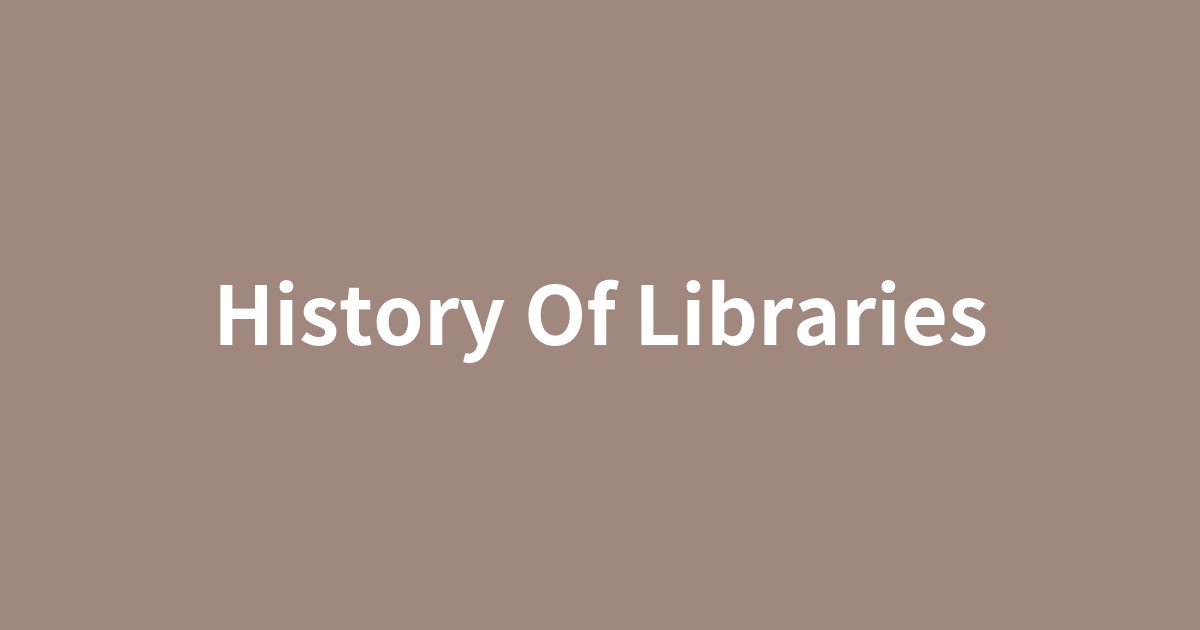このページは、歴史や文化の物語を楽しみながら、その文脈の中で重要な英単語を自然に学ぶための学習コンテンツです。各セクションの下にあるボタンで、いつでも日本語と英語を切り替えることができます。背景知識を日本語で学んだ後、英語の本文を読むことで、より深い理解と語彙力の向上を目指します。

古代世界の知を集めたアレクサンドリア図書館から、誰でもアクセスできる現代の図書館へ。人類のknowledge(知識)を守り、伝えてきた「知の宝庫」の物語。
この記事で抑えるべきポイント
- ✓古代アレクサンドリア図書館が、単なる書庫ではなく、国家的な学術研究センターとして機能していたという側面。
- ✓中世ヨーロッパでは、修道院が古典知識を「写本」として筆写することで、知の継承に決定的な役割を果たしたという歴史。
- ✓活版印刷技術の登場が知識の普及を促し、図書館が一部の特権階級のものから、市民に開かれた「公共」の施設へと変貌を遂げたプロセス。
- ✓デジタル化の波により、図書館の機能が物理的な「場所」から、時間や空間を超えた「情報アクセスポイント」へと進化しつつある現代の動向。
もし、すべての知識が失われたなら
もし、人類が何千年もの歳月をかけて蓄積してきた全ての知識(knowledge)が一夜にして失われたら、私たちの世界はどうなるでしょうか?文明は崩壊し、私たちは再び暗闇の中を手探りで進むことになるのかもしれません。この壮大な思考実験は、私たちがある存在の重要性を再認識させてくれます。それは、人類の知のバトンを繋いできた「図書館(library)」です。その物語は、古代世界の知の頂点とされたアレクサンドリア図書館から始まります。
What If All Knowledge Were Lost?
What would happen to our world if all the knowledge (knowledge) accumulated by humanity over thousands of years were lost overnight? Civilization might collapse, and we might find ourselves fumbling in the dark once again. This grand thought experiment reminds us of the importance of one particular institution: the library (library), which has passed the baton of human intellect through the ages. That story begins with the pinnacle of ancient world knowledge, the Library of Alexandria.
古代世界の知の灯台:アレクサンドリア図書館の栄光と喪失
紀元前3世紀、ヘレニズム時代の文化の中心地エジプトのアレクサンドリアに、史上最も壮大な図書館が誕生しました。プトレマイオス朝の王たちが国家事業として設立したこの図書館は、単なる書物の保管庫ではありませんでした。世界中から優秀な学者(scholar)たちが集う総合研究機関「ムセイオン」に併設され、当時の知の探求と創造の最前線だったのです。
The Beacon of the Ancient World: The Glory and Loss of the Library of Alexandria
In the 3rd century BCE, in Alexandria, Egypt, the cultural center of the Hellenistic period, the most magnificent library in history was born. Established as a national project by the Ptolemaic kings, this library was more than just a repository of books. It was attached to the Musaeum, a comprehensive research institution where brilliant scholars (scholar) from all over the world gathered, making it the forefront of intellectual inquiry and creation of its time.
信仰と写本の時代:中世修道院が守った知の灯火
西ローマ帝国が崩壊し、ヨーロッパが「暗黒時代」と呼ばれる混乱期に突入すると、古代ギリシャ・ローマの輝かしい知の遺産は失われる危機に瀕しました。この時代、知の灯火を守り抜いたのは、人里離れた場所に築かれたキリスト教の修道院でした。俗世から隔絶された静寂の中で、修道士たちは祈りと労働に日々を捧げました。
The Age of Faith and Manuscripts: The Light of Knowledge Kept by Medieval Monasteries
When the Western Roman Empire collapsed and Europe entered a period of turmoil known as the "Dark Ages," the brilliant intellectual heritage of ancient Greece and Rome was on the verge of being lost. During this era, it was the Christian monasteries, built in remote locations, that protected the flame of knowledge.
知の爆発と公共の誕生:活版印刷がもたらした革命
15世紀半ば、ヨハネス・グーテンベルクによる「活版印刷機(printing press)」の発明は、世界を根底から揺るがす革命を引き起こしました。それまで非常に高価で、一部の特権階級の所有物であった書物が、安価かつ大量に生産できるようになったのです。この技術革新は、ルネサンスや宗教改革の思想をヨーロッパ全土に広める原動力となり、「知の民主化」とも呼べる時代の幕開けを告げました。
The Explosion of Knowledge and the Birth of the Public: The Revolution Brought by the Printing Press
In the mid-15th century, the invention of the "printing press" (printing press) by Johannes Gutenberg triggered a revolution that fundamentally shook the world. Books, which had been extremely expensive and owned only by a privileged few, could now be produced cheaply and in large quantities. This technological innovation became the driving force behind the spread of Renaissance and Reformation ideas throughout Europe, heralding the dawn of an era that could be called the "democratization of knowledge."
デジタル時代の知の海へ:現代図書館の挑戦と未来像
そして今、私たちはインターネットという第二の印刷革命ともいえる変革の真っ只中にいます。この「デジタル(digital)」の波は、図書館のあり方を再び大きく変えようとしています。図書館の機能は、もはや物理的な「場所」に縛られません。電子書籍やオンラインデータベース、そして歴史的資料を電子化した「デジタルアーカイブ(digital archive)」を通じて、私たちは時間や空間の制約を超えて、膨大な情報への「アクセス(access)」を手に入れました。
Into the Digital Sea of Knowledge: The Challenges and Future of Modern Libraries
And now, we are in the midst of a transformation, the internet, which can be called a second printing revolution. This "digital" (digital) wave is once again profoundly changing the nature of libraries. The function of a library is no longer bound to a physical "place." Through e-books, online databases, and "digital archives" (digital archive) that digitize historical materials, we have gained "access" (access) to vast amounts of information, transcending the constraints of time and space.
結論:未来へ続く知のバトン
古代のパピルスの巻物から、中世の羊皮紙の写本、近代の印刷された書籍、そして現代のクラウドサーバーへ。図書館(library)はその姿を劇的に変えてきました。しかし、人類が生み出した知識(knowledge)を集め、整理し、守り、そして次の世代へと手渡すという本質的な使命は、今も昔も何一つ変わっていません。テクノロジーが進化し続ける未来において、図書館は私たちにとってどのような存在になっていくのでしょうか。その答えを探す旅は、まだ始まったばかりです。
Conclusion: The Baton of Knowledge into the Future
From ancient papyrus scrolls to medieval parchment manuscripts, modern printed books, and contemporary cloud servers, the library (library) has dramatically changed its form. However, its essential mission—to collect, organize, protect, and pass on the knowledge (knowledge) created by humanity to the next generation—has not changed at all. In a future where technology continues to evolve, what kind of existence will the library become for us? The journey to find that answer has only just begun.
テーマを理解する重要単語
scholar
古代アレクサンドリア図書館の解説で登場します。この図書館が単なる書庫ではなく、世界中から優秀な「学者」が集う最先端の研究機関だったことを示しています。知が単に保存されるだけでなく、創造される場としての図書館の役割を浮き彫りにする単語です。
文脈での用例:
He is a respected scholar of medieval history.
彼は尊敬される中世史の学者です。
accumulate
記事の冒頭、「人類が何千年もの歳月をかけて蓄積してきた知識」というフレーズで使われています。図書館が扱う知識が、一瞬で生まれたものではなく、長い時間をかけて少しずつ積み重ねられてきた貴重なものであることを示唆し、物語全体の深みを与えています。
文脈での用例:
Over the years, he had accumulated a vast collection of rare books.
長年にわたり、彼は膨大な数の希少本を収集していた。
heritage
西ローマ帝国崩壊後の混乱期に、古代ギリシャ・ローマの「知的遺産」が失われかけた文脈で使われます。図書館が、単なる情報ではなく、過去から受け継がれ未来へ手渡すべき価値あるもの(=遺産)を守るという、文化的な使命を帯びていることを示唆する言葉です。
文脈での用例:
The old castle is part of the nation's cultural heritage.
その古い城は、国の文化遺産の一部です。
public
近代図書館の理念を象徴する重要な単語です。知の民主化が進む中で生まれた、身分や貧富に関わらず誰もが利用できる「公共」の図書館という概念を表します。税金で運営され、市民社会を支える知的インフラとしての図書館の役割を理解する鍵となります。
文脈での用例:
The park is open to the public free of charge.
その公園は無料で一般に公開されています。
manuscript
中世ヨーロッパのパートを理解するための鍵となる単語です。印刷技術がなかった時代、修道士たちが手で書き写した「写本」が、古代の知識を後世に伝える唯一の手段でした。この言葉から、当時の知識伝達の地道さと、その希少性を読み取ることができます。
文脈での用例:
The museum holds a collection of medieval illuminated manuscripts.
その博物館は、中世の装飾写本のコレクションを所蔵しています。
access
現代の図書館が提供する中核的な価値を表します。デジタル化によって、私たちは時間や空間の制約を超え、膨大な情報への「アクセス」を手に入れました。この単語は、図書館の役割が「所有」から「接続」へとシフトしている現代的な状況を的確に示しています。
文脈での用例:
This ticket gives you access to all the museum's exhibitions.
このチケットで、博物館のすべての展示にアクセスできます。
knowledge
この記事の根幹をなすテーマそのものです。人類が蓄積し、図書館が時代を超えて守り伝えてきた「知」を指します。図書館の歴史は、このknowledgeをいかに収集し、保存し、共有するかの闘いの歴史でもあり、この単語が物語全体の中心軸となっています。
文脈での用例:
The library is a treasure trove of human knowledge.
図書館は人類の知識の宝庫です。
preserve
古代の蔵書の喪失、中世の写本による継承、現代のデジタルデータの永続性問題など、記事全体を貫いて登場する重要な動詞です。知識を失われないように「保存する」という行為が、図書館の時代を超えた使命であり、同時に困難な課題であることを象徴しています。
文脈での用例:
It is our duty to preserve the natural environment for future generations.
未来の世代のために自然環境を保護することは我々の義務です。
institution
図書館を単なる建物ではなく、社会的な目的を持って設立・運営される「機関」や「制度」として捉える視点を与えてくれます。古代アレクサンドリア図書館が国家事業であったように、図書館が社会の中で重要な役割を担う公的な存在であることを示す言葉です。
文脈での用例:
Marriage is a social institution that exists in almost every culture.
結婚は、ほぼ全ての文化に存在する社会的な制度です。
civilization
記事冒頭の「知識が失われれば文明は崩壊する」という思考実験で登場し、物語のスケールを提示します。図書館が単なる本の保管場所ではなく、私たちの「文明」そのものを支える根幹的な存在であることを理解する上で、非常に重要なキーワードです。
文脈での用例:
Ancient Egypt was one of the world's earliest civilizations.
古代エジプトは世界最古の文明の一つでした。
printing press
図書館の歴史における最大の転換点を象徴する言葉です。この「活版印刷機」の発明が、書物を安価かつ大量に生産可能にし、一部の特権階級による知の独占を打ち破りました。知の民主化と、近代的な公共図書館誕生の原動力を理解する上で不可欠です。
文脈での用例:
Gutenberg's invention of the printing press revolutionized communication.
グーテンベルクによる活版印刷機の発明は、コミュニケーションに革命をもたらしました。
digital archive
現代の図書館が遂げている変革を具体的に示す言葉です。物理的な書物だけでなく、歴史的な資料などを電子化して保存・公開する「デジタルアーカイブ」は、図書館の機能が場所の制約を超えたことを象徴します。知の海の広がりを実感できるキーワードです。
文脈での用例:
The national library is creating a digital archive of historical newspapers.
国立図書館は、歴史的な新聞のデジタルアーカイブを作成しています。